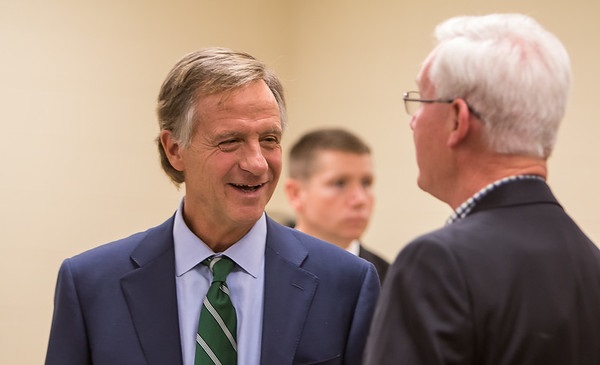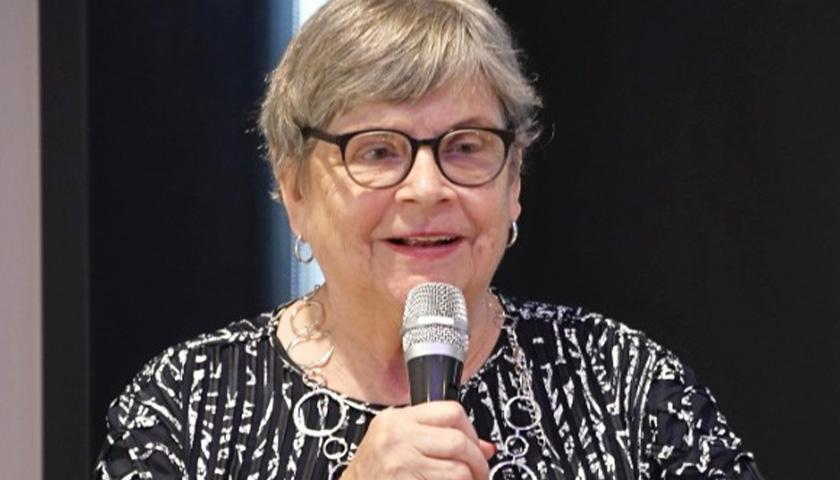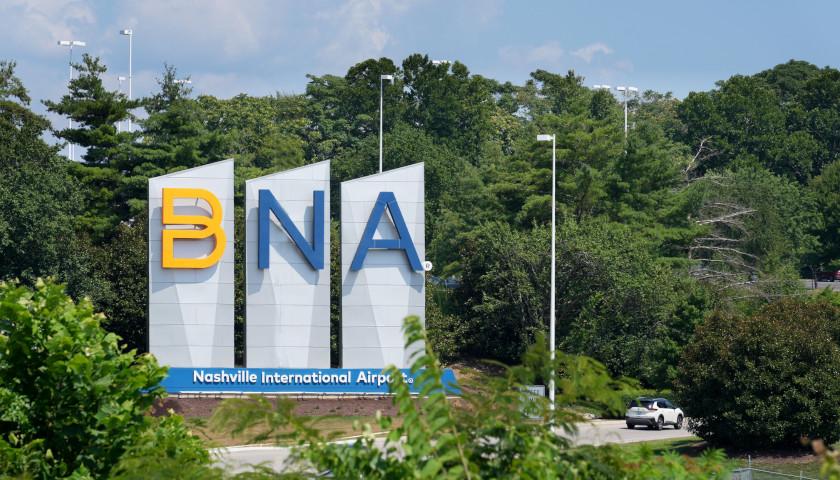Three years ago when the “Transparent Tennessee” website was launched, Governor Haslam said:
“A state government that is accountable to Tennessee taxpayers is an important part of being customer-focused, efficient and effective. The advanced function of this website will allow citizens more access to information about how state dollars are spent.”
Last year Haslam disclosed that the 2016 budget would repay the transportation fund $261 million dollars that was transferred to the general operating fund during the Sundquist and Bredesen administrations to close budget shortfalls.
“We have a covenant with our citizens that the gas tax charged by the state at the pump is dedicated to transportation-related purposes and not something totally unrelated,” State Sen. Jim Tracy (R-Shelbyville) said several months before the 2016 legislative session began, urging that this repayment be made.
This is called “dedicated funding” and according to TDOT, “[n]o money from the state’s general fund, which relies on the sales tax, is used in any of the programs of the Tennessee Department of Transportation.
But it seems that not all state fuel tax monies reach TDOT before being diverted to the general fund.
Issues raised after Wednesday’s Sumner County gas tax town hall call into question the transparency of the Governor’s allocation of fuel taxes in his 2017-18 budget. The Governor maintains that “[w]hat we’ve always done is to say road fuel pays for roads, other things car related go to general fund.”
The Tennessee Star’s research shows otherwise:
“A quick check on this claim shows that $97.4 million of gas and motor fuel (diesel) tax is allocated to the general fund and debt service in Gov. Haslam’s 2017-18 budget, in addition to another $90 million of motor vehicle related fees.”
Add to this that a review of Governor Haslam’s budgets since he took office shows that he budgeted less for transportation in every year since his first budget in 2011.
During a radio interview on 99.7 FM WWTN on Thursday, former State Rep. Joe Carr referenced the potential conflict of interest posed by Governor Haslam’s proposed fuel tax increase if it benefits the privately held, family owned business Pilot Flying J, a distributor and a retailer of gas and diesel fuel.
Governor Haslam is an equity interest holder in his family’s privately held business, Pilot Flying J, but has refused to disclose his income from this source. Neither has he placed his Pilot holdings in a blind trust. He was criticized heavily during the 2010 campaign for the conflict of interest with regard to any highway expansions because of his income from Pilot.
Carr suggested that the conflicts of interest question could be put to rest if representatives from Pilot Flying J as well as representatives from the state’s Department of Revenue appeared in public to testify on the record before the respective House and Senate Transportation Committees on the impact Gov. Haslam’s proposed gas tax increase will have on Pilot Flying J’s business operations. Specifically, that on the record testimony would address the facts surrounding the impact on the company’s cash flow management and profits.
The Star asked State Sen. Paul Bailey (R-Sparta), the newly appointed Chairman of the Senate Transportation Committee, whether a full and open discussion in a committee hearing of exactly what impact Gov. Haslam’s proposed fuel tax increase will have on the Haslam family business would be in the public interest.
“I’m certainly open to having a representative from the petroleum industry lay this issue to rest. However, I do not think we should single out one business regardless of who owns the company,” Bailey told The Star in an emailed statement.
“The payer of these taxes remit payment to the state upon delivery to their terminals; therefore, the only ‘float’ comes to the benefit of the state which is paid before fuel products are actually sold to end users,” Bailey added.
The question left unanswered by State Sen. Bailey is this: How does this square with Governor Haslam’s commitment to “Transparent Tennessee?”
Bailey may have offered an accurate description of one aspect of the impact of the proposed gas tax increase on Pilot Flying J.
Critics have asked, however,whether voters in Tennessee have a right to hear that question–and any other question members of the relevant committees of the Tennessee General Assembly wish to pose on the gas tax’s impact–answered by a representative from Pilot Flying J.
It is in the public interest for Gov. Haslam to fully disclose the impact on his own significant financial holdings in the equity of Pilot Flying J that the public policy he has proposed–increasing the gas tax by 7 cents per gallon and the diesel tax by 12 cents per gallon–will have.
Such disclosure would be consistent with the principles he himself articulated when he launched the “Transparent Tennessee” website.









[…] of whether the “float” that unremitted fuel taxes benefit a fuel supplier, Sen. Bailey raised the additional question of exactly when the taxes collected are paid to the Tennessee Department of […]
“The payer of these taxes remit payment to the state upon delivery to their terminals; therefore, the only ‘float’ comes to the benefit of the state which is paid before fuel products are actually sold to end users,” -Senator Paul Bailey
WRONG! According to the TN Dept. of Revenue, payment AFTER taxes are collected at Pilot and Flying J stations can be remitted monthly or quarterly, giving the Haslam family business MILLIONS in regular cash flow, interest-free and tax-free. (call and ask – the nice lady at TNDOR will tell you)
A Governor whose family business is selling gasoline and diesel proposing a tax increase on gasoline and diesel? All while TN has a 1.8 BILLION surplus and 200 MILLION is added to that each year? AND while TN is #2 state in the nation in best infrastructure? We don’t have a revenue problem. Our TN Legislature has an allocation problem. Conflict of interest red flags should go up with EVERY Tennessee tax-payer!
It’s up to the CITIZENS to keep TN a low-tax state – not the politicians. Just say “NO” to the Gov’s Gas Tax. Call your TN Rep and Senator today!
If you wonder what that smell in the air is, it’s Haslam’s proposed gas tax.
.